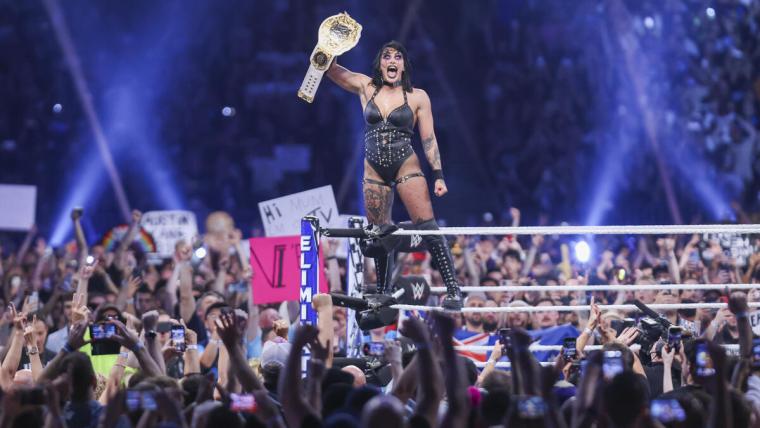Lou Gala: Character Analysis And Impact On The Decameron's Narrative

Table of Contents
The Decameron, Boccaccio's masterpiece, is a vibrant tapestry woven with intricate characters and compelling narratives. Within this rich framework emerges Lou Gala, a figure who, despite not being a central protagonist in the traditional sense, holds a significant place in the story's overall impact. This article delves into a character analysis of Lou Gala, examining her social standing, personality, role in the frame narrative, and ultimately, her representation of female agency in 14th-century Italy. We will explore how Lou Gala contributes to our understanding of The Decameron as a whole.
Lou Gala's Social Standing and Circumstance
Lou Gala's background significantly shapes her actions and interactions within The Decameron. While Boccaccio doesn't provide extensive biographical details, her presence within the noble company fleeing the plague suggests a certain level of social standing. However, her position as a woman in a patriarchal society of 14th-century Florence immediately places limitations on her.
- Her family's social standing: Her inclusion amongst the nobility suggests a family with some degree of wealth and influence, though not necessarily of the highest echelon.
- Her economic situation: While implied, her economic independence (or lack thereof) remains somewhat ambiguous, adding another layer of complexity to her character.
- The limitations placed upon her due to gender: The constraints imposed on women of her era heavily influenced her options and actions. These limitations are subtly yet powerfully depicted in her interactions with other characters.
Lou Gala's Personality Traits and Motivations
Lou Gala's personality is defined by her resilience, intelligence, and a quiet strength. She isn't portrayed as overtly assertive or rebellious, but her actions consistently demonstrate a shrewd understanding of her surroundings and a capacity for strategic maneuvering.
- Evidence of her intelligence and wit: Her contributions to the conversations and her ability to navigate the social complexities of the group suggest a sharp mind and an ability to subtly influence others.
- Examples of her resourcefulness and adaptability: While not explicitly stated, her mere presence and survival amidst the chaos of the plague and her integration into the storytelling group imply a remarkable capacity for adaptation and resourcefulness.
- Analysis of her motivations: Lou Gala's motivations seem primarily driven by survival and a desire for social acceptance within the confines of her societal constraints. She skillfully uses her wit and observation to navigate the complexities of her situation.
Lou Gala's Role in the Frame Narrative of The Decameron
Lou Gala's role in the frame narrative of The Decameron is crucial, though subtle. She doesn't directly narrate a tale, but her presence within the group of storytellers contributes to the overall atmosphere and tone. Her character acts as a silent observer, her reactions and interactions enriching the narrative and adding another perspective to the unfolding events.
- Her relationship with other characters in the frame narrative: Lou Gala's interactions, although often brief, reveal her dynamic with the other members of the group, highlighting the social dynamics within the company.
- Her contributions to the storytelling: While not a narrator herself, her presence and reactions subtly shape the direction and interpretation of the stories being told.
- The symbolic significance of her character in the context of the plague and its aftermath: Lou Gala's survival through the plague can be interpreted as a symbol of resilience and adaptation in the face of adversity.
Lou Gala and the Theme of Female Agency in The Decameron
Lou Gala stands as a fascinating example of female agency in The Decameron. While she doesn't directly challenge patriarchal structures in an overt manner, her quiet strength, resourcefulness, and ability to navigate the social landscape within the constraints of her time represent a significant form of agency.
- Specific examples of her independent actions: Though indirect, her choices within the frame narrative demonstrate an underlying independence of thought and action.
- How she subverts societal expectations: She subverts expectations subtly, primarily through her quiet strength and her ability to influence others through her observation and insightful comments.
- A comparison to other strong female characters in the Decameron: Comparing Lou Gala to other prominent female characters in The Decameron reveals a spectrum of female agency, highlighting both subtle and overt expressions of independence.
Conclusion
In conclusion, Lou Gala, although a seemingly minor character in The Decameron, offers a compelling lens through which to examine the complexities of female agency within the constraints of 14th-century Italy. Her resilience, intelligence, and quiet strength make her a fascinating subject of analysis. Her role within the frame narrative subtly yet powerfully underscores the multifaceted nature of Boccaccio's masterpiece. By carefully considering her character, we gain a deeper appreciation for the societal dynamics and the themes explored in The Decameron. Deepen your understanding of Boccaccio’s masterpiece by further exploring the fascinating character of Lou Gala in The Decameron, and consider researching other subtle yet impactful characters within the novel. The study of Lou Gala is a crucial component of understanding the nuances of The Decameron and the representation of women in 14th-century literature.

Featured Posts
-
 Canada Post Financial Instability Analysis And Potential Solutions For Mail Service
May 20, 2025
Canada Post Financial Instability Analysis And Potential Solutions For Mail Service
May 20, 2025 -
 Big Bear Ai Stock A Comprehensive Investment Analysis
May 20, 2025
Big Bear Ai Stock A Comprehensive Investment Analysis
May 20, 2025 -
 Jannik Sinners Monte Carlo Preparation Rain Delays First Training Session
May 20, 2025
Jannik Sinners Monte Carlo Preparation Rain Delays First Training Session
May 20, 2025 -
 Wwe Raw May 19 2025 Full Results And Match Grades
May 20, 2025
Wwe Raw May 19 2025 Full Results And Match Grades
May 20, 2025 -
 Apprendre L Ecriture Comme Agatha Christie Grace A L Intelligence Artificielle
May 20, 2025
Apprendre L Ecriture Comme Agatha Christie Grace A L Intelligence Artificielle
May 20, 2025
